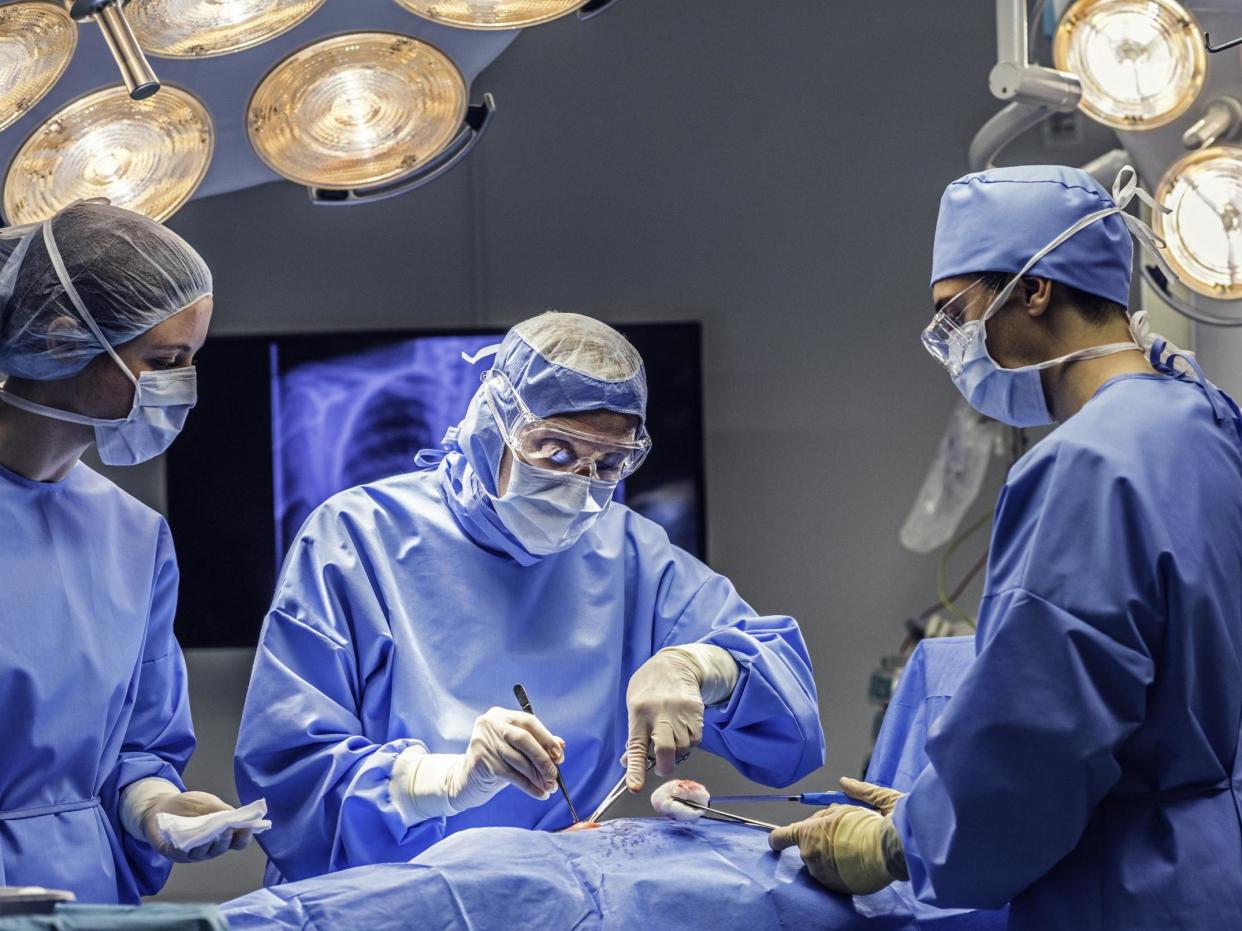Long NHS waits help drive more patients to pay for private surgery

The number of British people choosing to pay for private hospital surgery has soared with the total amount spent doubling in six years to £1.1bn.
Widespread NHS rationing of treatments and record waiting lists have helped deliver a 7.4 per cent real-terms growth in self-paying patients between 2014 and 2018, according to market analysts LaingBuisson.
Its latest report forecasts the market will continue to grow to £1.3bn by 2021.
It also found NHS hospitals were increasingly profiting from the treatment of private patients, with total revenue from NHS-run private units up 3.2 per cent to £677m in 2018-19, with particular growth in obstetrics and cardiology.
There are more than 4.4 million patients now on the NHS waiting list for surgery, the highest number since 2007.
LaingBuisson said there was evidence NHS waits for diagnostic scans such as MRI, CT and ultrasound were also driving people to pay for the tests themselves with MRI scans now available for just hundreds of pounds.
At the end of September more than 38,000 patients had waited six weeks or more for one of 15 key NHS diagnostic tests. This was the worst performance since February 2008.
LaingBuisson said NHS waits were a “key driver”, pointing out that more than 660,000 patients had waited beyond the health service’s 18-week waiting time target.
Self-paying patients, who fund the care themselves rather than using the NHS or insurance providers, made up just over a fifth of total private hospital revenues in 2018.
Although this has risen since 2010 it remains lower than the peak of 28 per cent in 1981 when NHS surgery waits were measured in years.
Report author Liz Heath said: “At that time it was not unusual to have someone on a waiting list for two or three years.
“There is some correlation between self-pay and NHS performance but it’s not a single factor. There are other things going on that influence people, for example if you’re self-employed and don’t want to risk a cancellation or the move from inpatient care to ambulatory or [same day surgery] care which is now much more affordable than it was.”
She added that the relative cost of private surgery had also become more affordable which has meant people have not renewed their health insurance and instead opted for a “mix and match” approach with private healthcare now a “considered one-off purchase” like a car or a family holiday.
Other incentives include zero-interest financing for some surgeries while companies are actively using affordability and rising NHS waiting times in their marketing material.
According to LaingBuisson’s analysis, the total revenue for private hospitals in the UK in 2018 was more than £5bn, of which around £1.6bn was for treating NHS patients.
People who pay for their own healthcare, without insurance, generated 21 per cent of private sector hospital revenues in 2018.
LaingBuisson found significant variation in the price patients paid with the quoted guide price for a knee replacement varying from £8,110 to £15,160 across 171 hospitals.
The UK private acute medical care market has five large providers – BMI Healthcare, HCA, Nuffield Health, Ramsay Health Care and Spire Healthcare.
Their combined share of UK private hospital care was estimated at 60 per cent for 2018. Spire Healthcare, BMI Healthcare and HCA had the largest shares of this market.
The Royal Marsden Foundation Trust was the largest NHS provider of private acute medical care with an 18 per cent share of NHS private patient revenues.
Read more
Hundreds of vulnerable patients sexually assaulted on NHS wards
Dozens of hospitals leaving NHS staff at risk of attacks by patients


